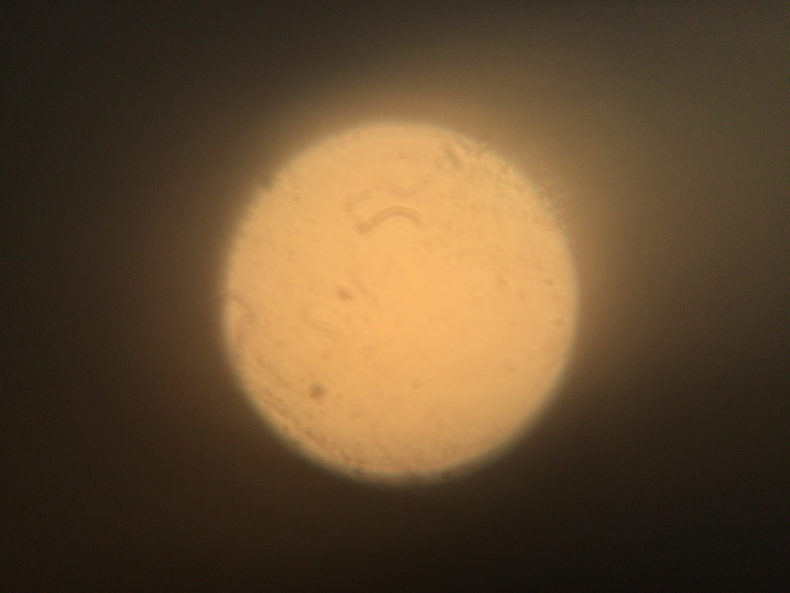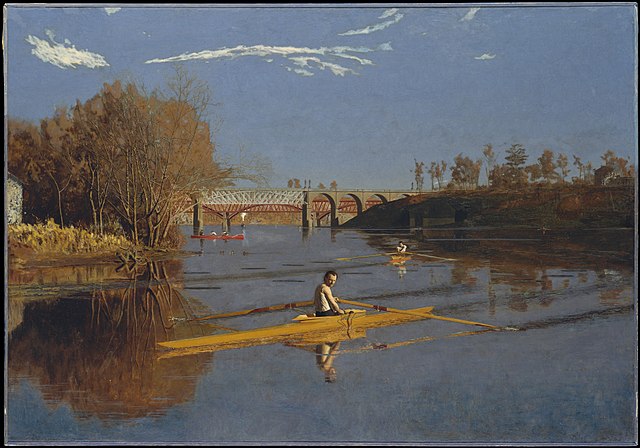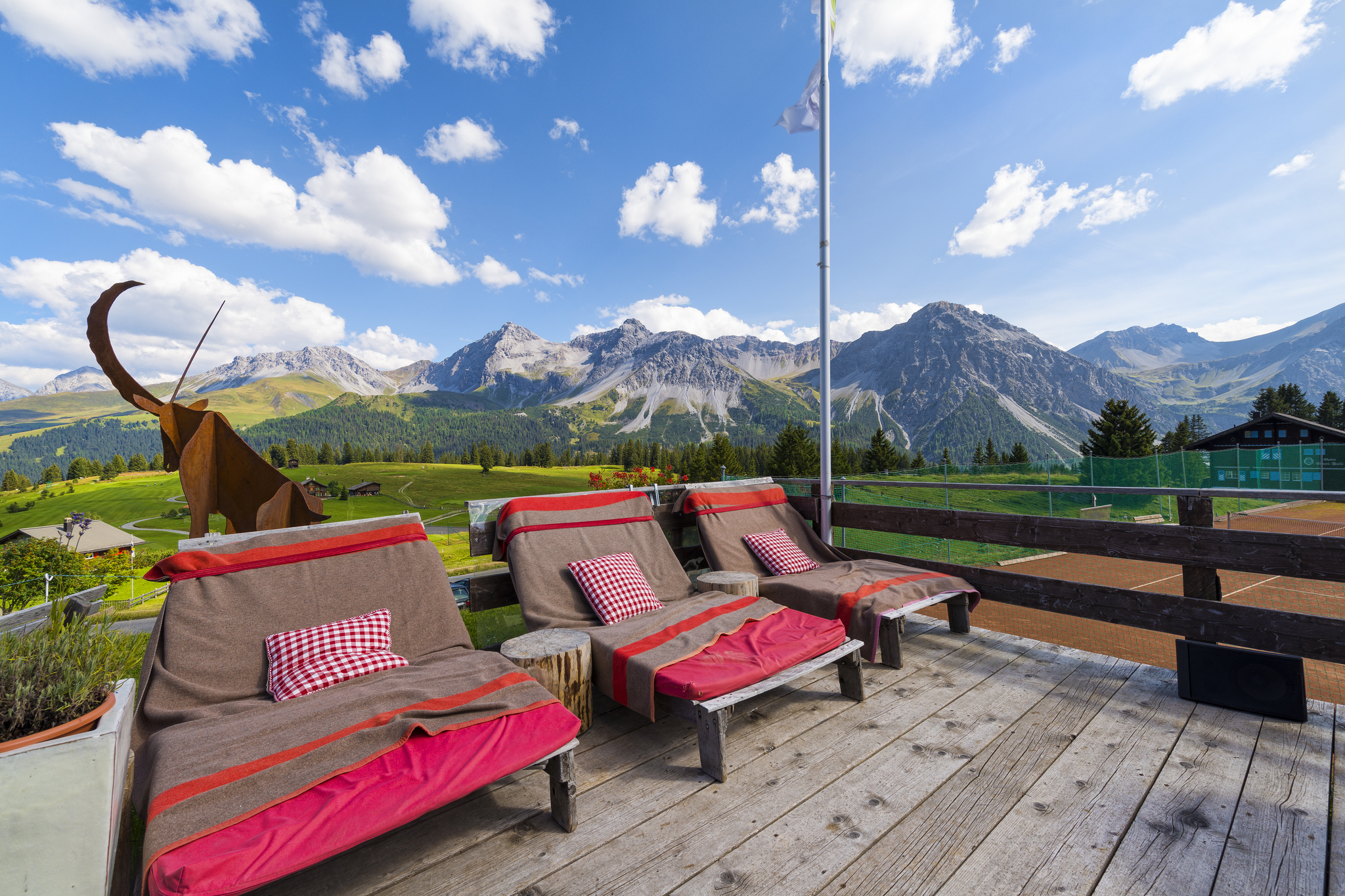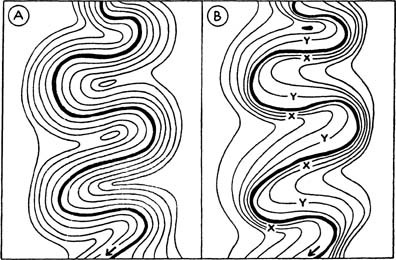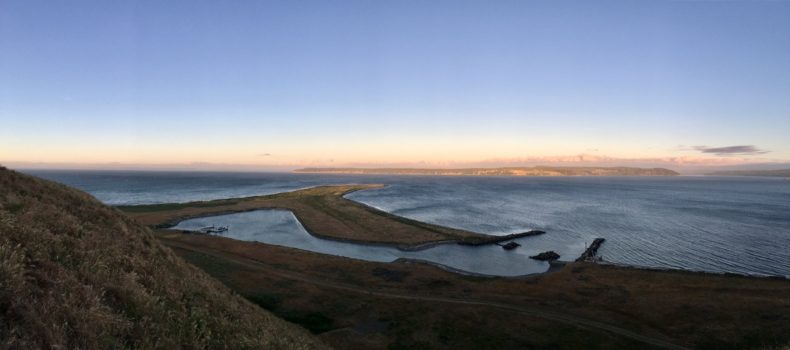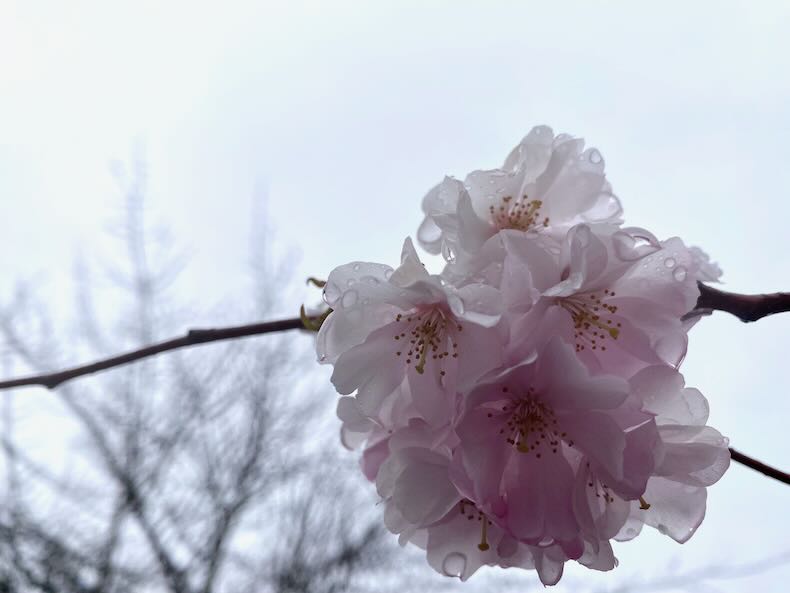This first ran in August, 2016, and then it ran again a year or so later, because the recipe for mint lemonade had an important update. It’s had no updates since because Helen and I have not gotten together because, you know. And I’m re-upping it now because it’s hot out and I don’t know how else to talk about summer heat, specifically mid-Atlantic summer heat. Not that everyone else’s summer heat isn’t also impressive and unbearable and I suppose will be getting more so. Luckily, Helen and I have discovered the cure, the antidote, the perfect response, and I feel I should share it as often as possible.
Oh my but it was hot. The sun stayed out, the humidity kept climbing, the air was flat-white and dense, walking through it took more effort than it was worth. The temperature was in the upper 90’s, heat index in the upper 110’s, and they stayed that way for days. A cardinal sat in the graying lilac outside my living room window, its beak open, panting.* A hummingbird appeared on the feeder and drank and drank and drank, I’ve never seen one sit so long. The garden flowers were wilting, the whole garden seemed to be having a lie-down. Unhappiness had seized the world and nothing was going to get better.
But in case it did I wanted to still have a garden, so I put out a spot-sprinkler, like a fountain, near the birdfeeder. About ten minutes later, the air was full of little birds, going to and from the feeder by flying through the sparkly water like hot-dogging jet fighters. After a while, the sprinkler water began running in a small stream in the trench outlining the garden bed, and a sparrow sat in the stream, fluffing his feathers full of water. Later I looked out the window and now the lawn was full of adolescent sparrows and goldfinches, ten or fifteen of them, just sitting on the grass in the sprinkling water. They were talking interestedly to each other but otherwise they sat still, letting the water cool them, like tiny brown nesting hens, like little rabbits hunkered down in the wet green grass.
And later still, the doves came, landing in the grass, swoosh bump. One of them, then another one, then another, lay on their sides with one wing lifted, their wing feathers spread out, cooling one side and then flipping over to the other. They looked less like birds than like yoga class.
It reminded me of the weekend before — just as hot, this was a long heat wave – when our Helen came to visit. We share an interest in sitting on the porch and talking to each other and to passing neighbors while Helen knits. The porch was breathtakingly hot, so we prepared ourselves by making mint lemonade. Helen had had it in Saudi Arabia and found a recipe; we thought we’d try it. I borrowed a blender from a neighbor, Helen and I picked mint, I squeezed lemons, Helen measured the water, the demarara sugar, and the ice cubes, and we put the whole thing into the blender. It blended up nicely, the sugar melted, the blender had a spigot, and we spigotted that mint lemonade into glasses. It came out brown,** the color of pond water. It was not what we had in mind. So I poured it back into the blender and meanwhile, Helen had an epiphany, a moment of sheerest genius: “Blend and spigot at the same time,” she said. The lemonade frothed into the glasses, an icey, slushy, foamy light green. By the time we got it out onto the porch, the foam and liquid had separated, and now it looked like pond water with scum. We didn’t care any more, we drank it, out there in the heat, and it was the exact counter to the heat, cool and vivid; you could believe in the goodness of life again.
A neighbor, a young woman pushing her little girl in a stroller, came up the sidewalk. This young woman had a demanding full time job, as does her husband, and the husband had to travel this weekend so the woman and her little girl were on their own. The little girl had got strep throat, and then the young woman did. The two of them were recovering as best they could and decided some fresh air might help them recover more. But they didn’t consider the heat and by the time they walked up to the porch, the baby was pink and sweaty, and the young woman was pale, with two red spots on her cheeks.
Helen and I leapt into action, got the little girl a popsicle, brought out the rest of the mint lemonade, and sat with them under the ceiling fan and said soothing and boring things. After a while the young woman said, “This is so refreshing.” Then she said, “I feel so much better now.” And the next day she told me that she was completely recovered and that the mint lemonade was what cured her.
So this is to say, unhappiness in one form or another will surely seize the world again but things do get better. A little sprinkler, a little mint lemonade — it might be good to make a list of these things — and things really do start looking up.
___________
*UPDATE: I just saw this in Science News and knew you’d want to know it: “Birds can’t sweat, . . . and the many species that pant as a cooldown technique have to compensate for the water lost in the process. Birds let their body temperatures rise to heights that would cook a human, and Wolf’s work has shown that this tolerance lessens water loss.” Did you get that? birds let their body temperatures rise to heights that would cook a human!
**UPDATE 2: A neighbor said that some drink she made with demarara sugar was kind of brown. So the brownness, which is not agreeable, of mint lemonade might be mitigated if you use regular white sugar. I’ll try that next time. Also, demarara is also called turbinado.
UPDATE 3: See previous redux, with a plan for the next update, whenever it might be: white sugar + blend the mint and sugar together before adding ice. We’re gonna get this right, I promise.
